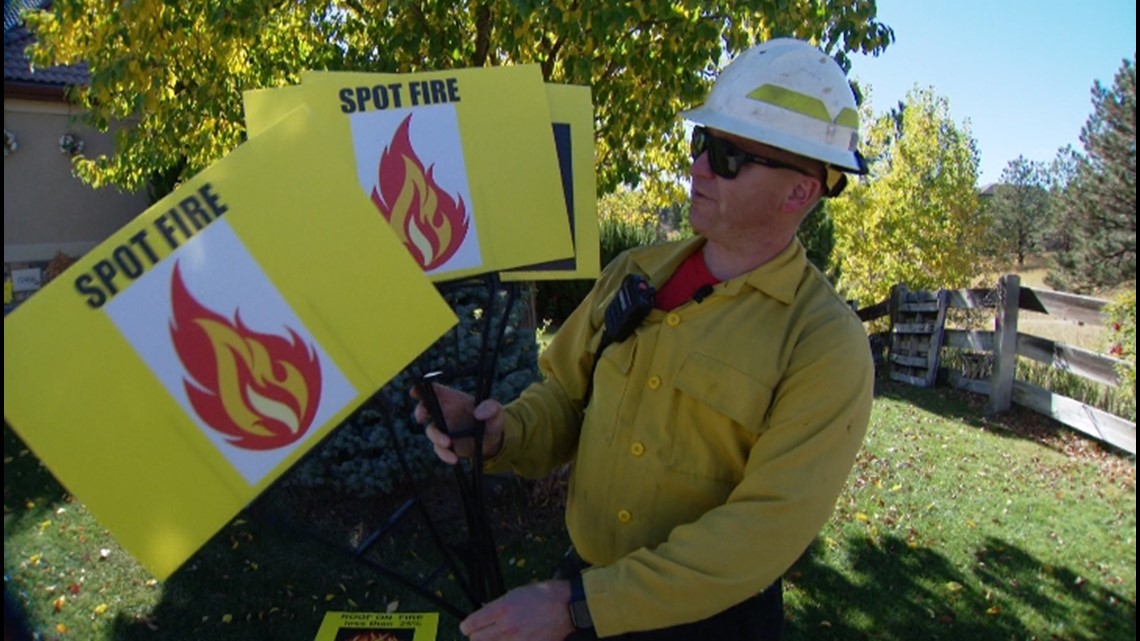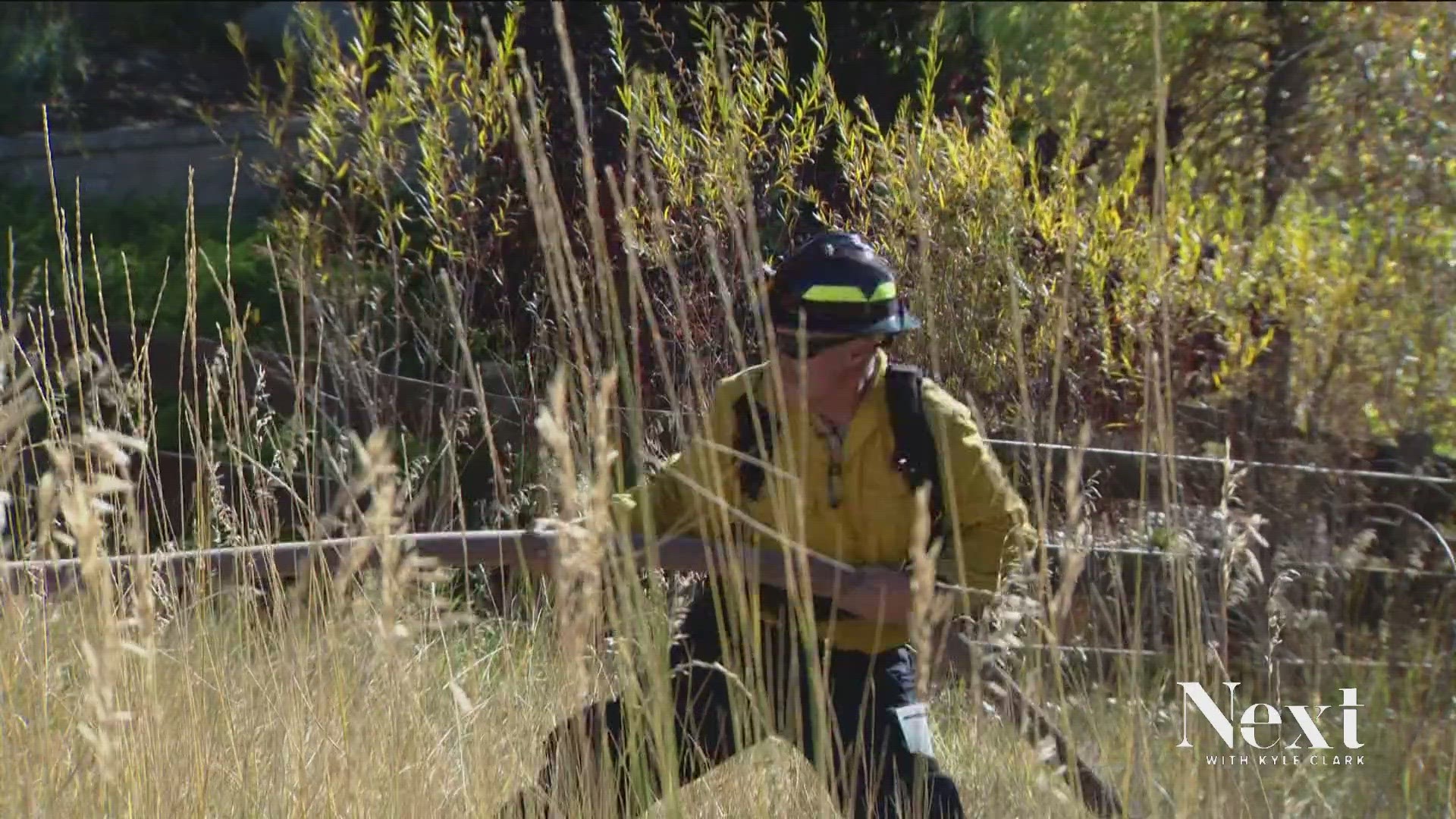AURORA, Colo. — The calm of a fall afternoon changes quickly. The trucks arrive, firefighters run, and the drills begin. Luckily, in this neighborhood in Aurora, the Tuesday's fires were made of cardboard.
"We’re putting signs up that say for instance, spot fire, this area is on fire," said Jordan Simmonds, one of the instructors of the training exercise. "They’re going to come in here, and they’re going to be coming in full speed as if there was a real fire."
The training is the first of its kind, where five departments from across the front range practiced together for the next time a fire is far too big to handle by themselves.
The training hosted by Aurora Fire Rescue included Colorado Springs Fire, Denver Fire, South Adams County Fire Department, and South Metro Fire.


They’re preparing for the time when smoke fills the air, and the flames are real.
"The goal is to provide common tactics and common terminology within departments. No department is big enough to manage these fires," said Justin White, another instructor and a Battalion Chief for Colorado Springs Fire Department. "I think we look at every fire, every year. The most recent is the fire that happened in Maui. What is it that we can learn from their fire?"
From the Marshall Fire to Waldo Canyon, the biggest fires come with lessons. White knows when there are dozens of departments together working on a massive fire, everyone does things differently. Training like this aims to change that.
"I think the challenge is communication. You have a large group of agencies coming from a very diverse range of communities," White said.


More than 100 police and fire departments responded to the Marshall Fire. When you think of how many different people that entails, you can see just how chaotic that can be if everyone is using different language and terms.
Urban wildfires are happening more often, so the training for them is changing.
"All of our departments, we treat these events as when they’re going to happen not if they’re going to happen," White said. "There are more of them and they’re also bigger in nature."
SUGGESTED VIDEOS: Next with Kyle Clark

